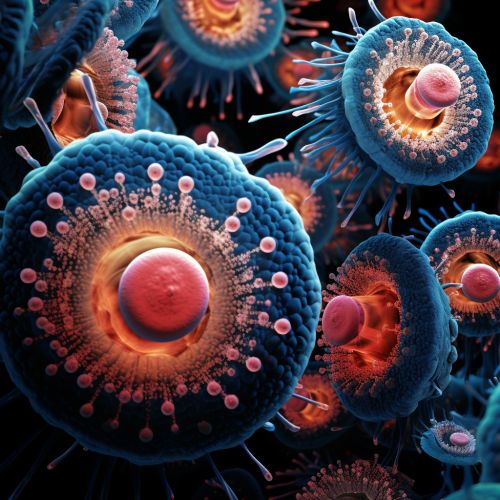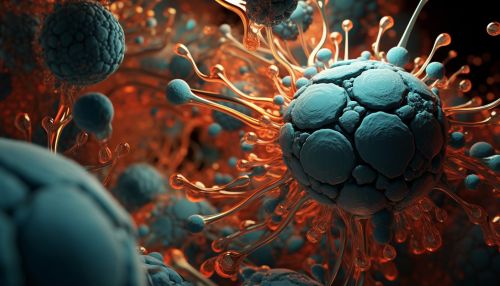Cancer
Overview
Cancer is a group of diseases characterized by the uncontrolled growth and spread of abnormal cells. There are over 100 types of cancer, including breast cancer, lung cancer, prostate cancer, colon cancer, skin cancer, and leukemia. The cause of cancer is multifactorial, with both genetic and environmental factors playing a role.


Causes and Risk Factors
Cancer can be caused by a variety of factors, including genetic mutations, lifestyle factors such as tobacco and alcohol use, certain infections, and exposure to environmental toxins and radiation. Some cancers are more strongly associated with certain risk factors than others. For example, smoking is a major risk factor for lung cancer, while exposure to ultraviolet (UV) radiation from the sun is a major risk factor for skin cancer.
Genetics
Genetic changes that cause cancer can be inherited from our parents if the changes are present in germ cells, which are the reproductive cells of the body (eggs and sperm). Such changes, called germline changes, are found in every cell of the offspring. Cancer-causing genetic changes can also be acquired during one's lifetime, as a result of errors that occur as cells divide or from exposure to substances, such as certain chemicals in tobacco smoke, that damage DNA. These changes, called somatic changes, are found in the DNA of most cancer cells.
Diagnosis
Diagnosis of cancer usually requires confirmation of disease through histological analysis of tissue samples, although some cancers can be diagnosed based on specific molecular and genetic markers. Diagnostic tools include biopsy, endoscopy, MRI scans, CT scans, PET scans, and blood tests. The stage of cancer at diagnosis, which refers to the extent to which the cancer has spread, is one of the most important factors in choosing treatment options and predicting patient outcomes.
Treatment
Treatment options for cancer include surgery, radiation therapy, chemotherapy, immunotherapy, targeted therapy, hormone therapy, stem cell transplant, and precision medicine. The choice of treatment depends largely on the type and stage of cancer, as well as the patient's overall health. In many cases, a patient will receive a combination of treatments. For some types of cancer, palliative treatments are used to ease symptoms and improve quality of life rather than to cure the disease.
Prevention
Cancer prevention includes actions taken to lower the chance of getting cancer. This can include maintaining a healthy lifestyle, avoiding exposure to known cancer-causing substances, and taking medicines or vaccines that can prevent cancer from developing. Early detection of cancer can significantly improve the chances of successful treatment and survival. Screening methods, such as mammography and colonoscopy, allow doctors to detect certain cancers before they cause symptoms.
Epidemiology
Cancer is a leading cause of death worldwide. According to the World Health Organization, cancer accounted for 9.6 million deaths in 2018. The most common cancers globally are breast cancer, lung cancer, colorectal cancer, prostate cancer, skin cancer, and stomach cancer.
